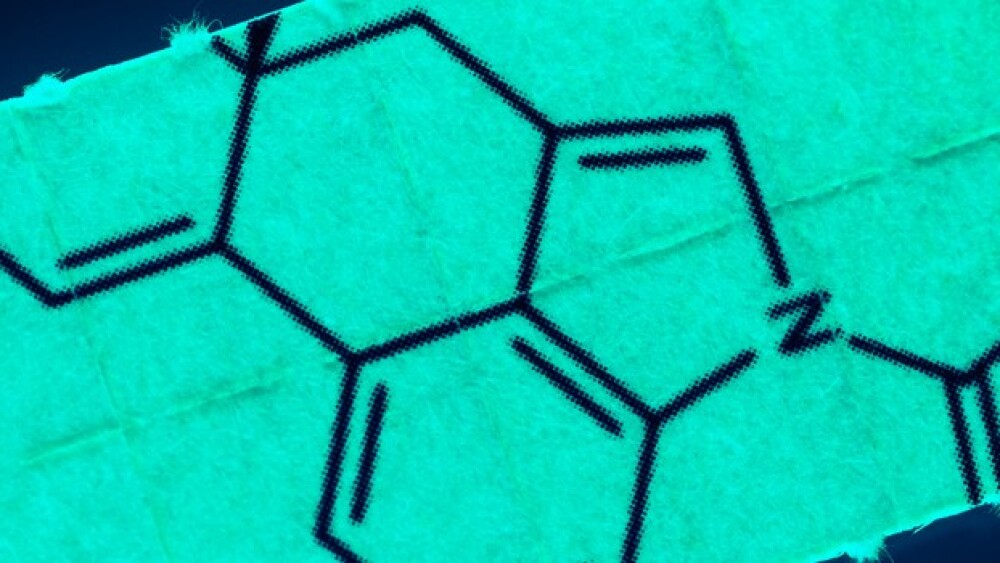The biotech reported topline data from a mid-stage study of MM-120, its LSD-based drug, in patients with generalized anxiety disorder.
Pictured: Pieces of paper with chemical structures, micro dosing concept/iStock, yurok
New York-based biotech MindMed on Thursday reported topline results from a Phase IIb trial of its LSD-based candidate MM-120 (lysergide d-tartrate), which met the study’s primary endpoint in patients with generalized anxiety disorder.
MindMed said the drug reached the primary endpoint of statistically significant and “clinically meaningful” dose-dependent improvements on the Hamilton Anxiety rating scale when compared against a placebo.
A 100µg dose of the drug demonstrated a 7.6-point reduction on the Hamilton scale compared to a placebo at week four. A 21.3-point reduction was recorded in the MM120 dosage group, while a 13.7-point reduction was reported in the placebo group, earning a p-value of p<0.0004.
The scores for clinical global impressions for severity had improved on average from 4.8 to 2.4 in the dosage group. According to MindMed, this is a two-category shift for patients moving from “markedly ill” to “borderline ill” in week four. Clinical activity was found to be “rapid and durable,” starting on the second day and continuing through week four, with no loss of movement in either of the metrics.
Doses of the MM-120 product were administered in a single dose in a monitored clinical setting with no other therapeutics given.
“The pharmaceutical industry has largely ignored [generalized anxiety disorder] over recent decades as it has proved extremely difficult to target. Few new treatment options have shown robust activity in GAD since the last new drug approval in 2004, making the strong, rapid, and durable clinical activity of a single dose of MM-120 observed in the trial particularly notable,” MindMend CMO Daniel Karlin said in a statement.
MindMed also said that around 78% of trial participants had a clinical response compared to 31% in the placebo group. Half of those treated with the drug also reached clinical remission at week four.
In terms of safety, “transient mild-to-moderate” adverse events were reported that they were “consistent” with the pharmacodynamic effects of the drug, but no one in the high-dose groups stopped the trial due to an adverse event. The most common events were hallucinations, abnormal thinking, dizziness, nausea and hyperhidrosis, among others.
MindMed said that the results will support the candidate’s advancement into a Phase III trial, which is expected to start sometime in the second half of 2024.
On the psychedelics front, the MAPS Public Benefit Corporation on Tuesday submitted a New Drug Application to the FDA for an MDMA-assisted therapy for patients with post-traumatic stress disorder.
Tyler Patchen is a staff writer at BioSpace. You can reach him at tyler.patchen@biospace.com. Follow him on LinkedIn.






